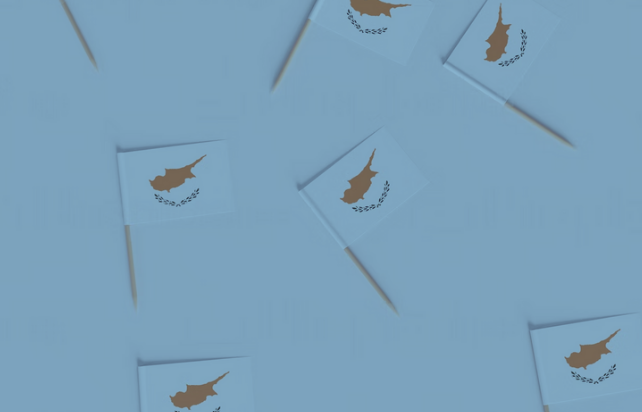
Written by Federica Ballardini
On June 27th 2022, wildfires raged in Northern Cyprus, devastating the surrounding area and leaving its inhabitants terrified. Strong winds fanned the flames across a far wider reach than usual, and there are some allegations that it may have been caused by arson. In total, the blazes claimed four lives and have been described as the worst fires in the history of the Eastern Mediterranean island.
Angelos (name changed) is a Greek Cypriot man who lives on the Green Line, the buffer zone between Northern Cyprus, an unrecognised state with ties to Turkey, and the Republic of Cyprus in the south— an internationally recognised EU member state. He has seen his immediate surroundings radically changed by the creation of checkpoints and watchtowers where he used to have his garden after the peacekeeping process started. “They (the UN) come and they clean up to this point, they don’t clean beyond that point” (A., personal communication, 25.06.2022).
Cyprus has been divided ever since 1974, when Turkey invaded the northern part in response to a Cypriot government coup aimed at annexing the island to Greece. Despite the attempted peace process, initiated at the dawn of the new century, the country remains to this day divided between a state that joined the European Union in 2004 and another recognised internationally only by Turkey.
The violent events of the invasion brought about heavy emigration and internal displacement in the country, which continue to this day; because of the border checks, some people haven’t been able to return to their homes or see family members for decades.
The UNFICYP, the United Nations Peacekeeping mission of Cyprus, was instituted in 1964 to stop intercommunal fighting, and the borderline they guard is now prominent in the minds of all inhabitants of the island, with numerous checkpoints along the Green Line. However, with wildfires raging with increasing frequency, it has become more clear than ever that no border or ceasefire line will stop environmental destruction.
For Charalampos Theopemptou, President of the Cyprus Green Party and Acting President for the Environment Commission of Parliament, the presence of the border might actually be counterproductive in some cases. Occasionally, UN personnel have the Green Line area set on fire to maintain good visibility, causing terrible environmental incidents. In general, Theopemptou sees worrying inaction from both the UN and the Cyprus government on the issue of climate change.
There is an ongoing debate, however it is hard to catch people’s attention and keep it focused on the question in order to implement effective action. “The belief here is that we are such a small country that what we do will not have any effect, we should instead press the “big ones,” Theopemptou says, “Because of the (political) situation, we are prevented from making long-term plans and shifting the attention and funding from the one issue we talk about” (C. Theopemptou, personal communication, 29.07.2022).
Cyprus recently had presidential elections, with the issue of Turkish occupation playing a decisive role rather than climate change. This is also reflected in the funding channelled into climate mitigation.
According to the Stockholm International Peace Research Institute, the military spending in Cyprus has been increasing, reaching 517.5 million USD in 2021; the data goes back to 1985, when it was 81.80 million USD, well above the average of the EU countries’ spending in military (as share of GDP) in percentage. (World Bank, 2021).
The obstacle to climate protection presented by the division of the island is not only a passive one: the President of the Green Party states that “people complain about bad air quality, but still they drive to Occupied Cyprus to fill their gas tanks with a product that doesn’t respect EU standards.”Air pollution affects everyone equally— as long as the island is divided, implementing climate action will be extremely hard.
In Cyprus, many are initiating action to reclaim control of the territory, and thereby trying to protect it from environmental destruction. Their action is proof that effective climate action can’t exist in a vacuum, but must be accompanied by peace-building, social justice, and dialogue.
Magda Zenon is one of the founding members of Hands Across the Divide. Registered in the UK in 2001, before officially creating a bi-communal organisation was even possible, Hands Across the Divide is a non-partisan, volunteer, and culture-focused group aimed at bringing the conversation
about women and peace-building to the streets. Even though relations between Southern Cyprus and the occupied part of the island have become increasingly normalised, and crossing the checkpoints to meet has become easier for members of Hands Across the Divide, there is still a lot that Zenon thinks should be added to the conversation. Especially in the context of climate change and protecting common land from human abuse, she holds that the very presence of the UN on the island might have to be re-evaluated. “The buffer zone is not no man’s land”, she says, “it’s UN land, as much as they say that it isn’t” (M. Zenon, personal communication, 17.07.2022).
The Permanent UN Mission to Cyprus was created with the objective of peacekeeping, not peace-building, with the consequence that the division between communities has been entrenched instead of diminished. Because of Cyprus’ colonial past, the opportunities for the building of a shared community have been hampered by the infamous strategy of divide and rule.
Zenon believes that not caring about common goods as a united community is a huge part of the problem: “We need to come, we need to clean, we need to care, it’s our land, Cypriot land, not the UN’s land, let’s take it back.”
The good news seems to be that community building and grassroots climate action could be treated as a joint challenge. Hands Across the Divide’s last project, for example, is a common garden, aimed at reclaiming territory to build a joint community, foster cooperation, enhance environmental consciousness and show that there are ways to come together as one when the stakes are so high.
With the news that Turkish-Cypriot authorities are planning to remove UN presence from their territory; it seems more relevant than ever to think critically about the conflict.
Without international peacekeeping, the situation in Cyprus could arguably become much more dire than it is today. However, climate change affects everyone on the island and solutions call for communal and collaborative action. To ensure such action, the solution is not to leave the island without international moderation, but rather it may be necessary to review and renegotiate the role this moderation plays on the ground, and whether it is proving effective in working towards the long-term goal of reconciliation. Climate protection might even provide an opportunity for more holistic and bottom-up peace-building, as initiatives like Hands Across the Divide show.
In the context of the recent elections in Cyprus, this seems like a decisive moment for both sides of the Cypriot conflict to make the right choices — which might even entail rethinking the role of external powers on the ground.
References
Kades, A. (2022, November 8). Cyprus committed to cutting carbon emissions, says President. Cyprus Mail. Retrieved from: https://cyprus-mail.com/2022/11/08/cyprus-committed-to-cutting-carbon-emissions-says-president/
Psaropoulos, J. (2022, October 27). New crisis brewing in Cyprus after US lifts arms embargo. Al Jazeera. Retrieved from: https://www.aljazeera.com/news/2022/10/27/new-crisis-brewing-on-cyprus-after-us-lifts-arms-embargo
World Bank. (2021). Military Expenditure as Percentage of GDP. Retrieved from: https://data.worldbank.org/indicator/MS.MIL.XPND.GD.ZS
Parts of this article are based on communication with people on the ground in Cyprus. The writer would like to thank: Magda Zenon, founding member of Hands Across the Divide Charalampos Theopemptou, President of the Cyprus Green Party and Acting President for the Environment Commission of Parliament.

 Is EU citizenship for sale – or for keeps? A critical analysis of the CJEU’s Golden Visa ruling.
Is EU citizenship for sale – or for keeps? A critical analysis of the CJEU’s Golden Visa ruling.  The European Union in Space: From exploration and innovation to security and autonomy
The European Union in Space: From exploration and innovation to security and autonomy  The Rise of the Right: The Threat Right-Wing Extremism Poses to Women and Feminist Efforts in Germany
The Rise of the Right: The Threat Right-Wing Extremism Poses to Women and Feminist Efforts in Germany  The silent shield – how special operations safeguard the global supply chain
The silent shield – how special operations safeguard the global supply chain 


